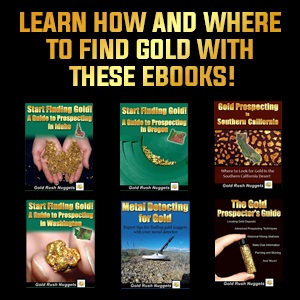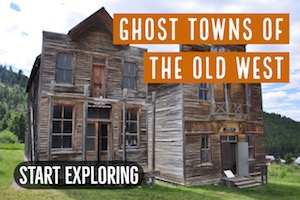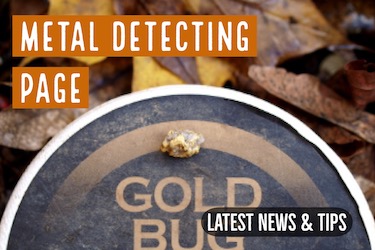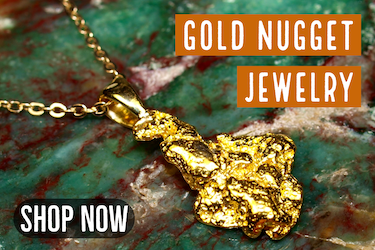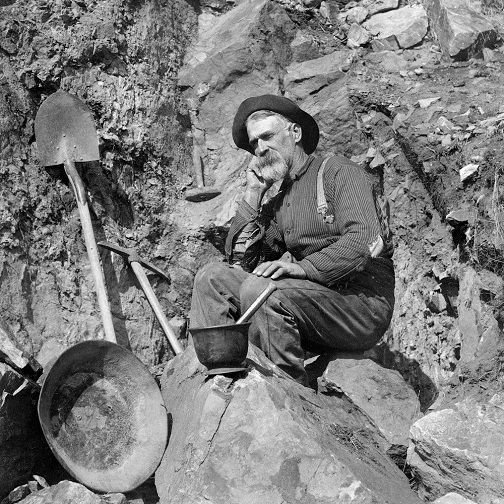
Do you get skunked every time you go prospecting? You’re not alone.
Tired of never finding any gold when you go out prospecting?
I know I was when I started.
There are no guarantees that you will find gold when you go out prospecting, and even the most experienced among us have days that they find little or no gold. After all, if gold were easy to find, then it wouldn’t be worth so darn much!
Still, there are a few very simple things that can make a huge difference to increase your odds of success when you go out searching for gold. These are certainly not “secrets.” This is very basic information, yet there are so many beginners that overlook these 3 basic things that are so important. Sure, you can ignore them and still might find a little gold, but take them seriously and you are already halfway to finding gold in the bottom of your gold pan!
1. You are not searching in a gold-bearing area
This has got to be the most basic rules of successful gold prospecting today, yet it is so often overlooked.
Gold occurrences throughout the United States are very well documented today, and a little bit of research will direct you to places that have a history of gold production. If you live in the West, then you are very likely within an hour or two of a known gold-bearing area (and very likely much less than that). In fact, many of the large cities and towns throughout the West started out as mining towns during the mid-1800’s, and many times gold can be found just a short distance outside city limits.
Research is a hugely important part of being a successful gold prospector. Research can be as simple or as complex as you wish to make it. The most successful prospectors I know are obsessed with it. They dig through old USGS reports, historic newspapers, books, articles, maps, and geological reports to help them find areas that have the best potential for gold. They easily spend hundreds of dollars and just as many hours poring over resource materials in search of those rich locations.
On the other hand, you don’t have to get this involved if you just want to find a little bit of gold on a fun weekend afternoon. The internet can probably provide all the information that you need to find some gold in your area. There are good resources like this state-by-state gold guide that will help you learn about gold bearing creeks and rivers in your area. You can also find a lot of books on the subject. Most of the western states have book specifically written about where to find gold within that state.

2. You are not digging in the right places
Alright, so you have done a bit of research and found a creek that you know has gold in it. You take your pan to the edge of the water, scoop some sands and gravel into your gold pan, and start panning it out. At the bottom of your pan you find a few garnets, some black sands, but unfortunately you don’t find any gold.
Even when you are in a very rich area, it is important to understand how placer gold is distributed within a waterway. Gold is not randomly scattered throughout a creek or river. Due to its high specific gravity, it acts in a very predictable way, and can often be very easy to find if you just search in the right spots.
Learning how to properly “read a river” for gold is one of the most important aspects of placer mining. Once you understand the way that gold acts in a waterway, then you can quite accurately predict the most likely areas to find gold in any waterway. Sure, it will still take a bit of exploration to find the richest spots, but an accurate understanding of where gold can be found in a creek is critical to success.
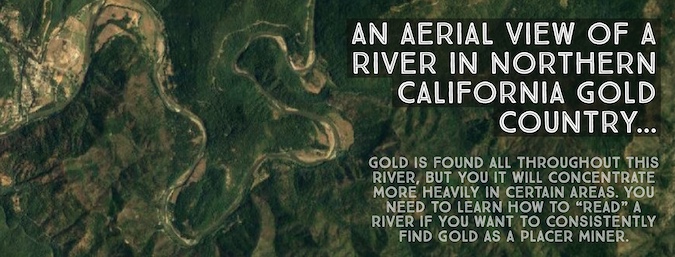
3. You are not moving enough material!
So now you are at a known gold bearing creek, with the knowledge of how and why gold is deposited in certain areas, you should be set! You find the perfect spot behind a large boulder on the inside bend of the stream. You dig down a ways and get down to where it’s hard to dig… you think you are getting close to bedrock so you scoop a shovelful of gravel into your gold pan. And once again, you pan it all out and find nothing – zip- zilch- nada!
Now what the heck is going on here?!?! You’ve done everything right, you’ve done your research, found a rich gold bearing river with a history of gold production. You located a nice looking spot that you just KNOW that there is some gold there. So why didn’t you find any?
You’ve done everything right up to this point… now it’s time to start moving some dirt!
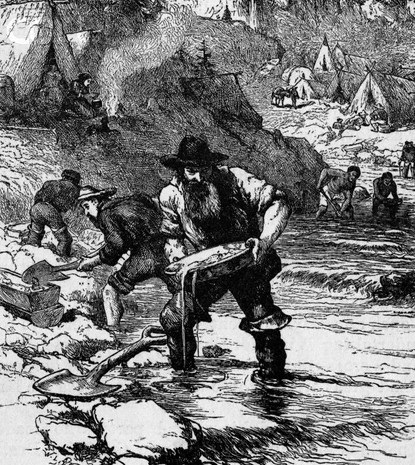
The bottom line is that gold is still rare and tough to find sometimes. Even if you do everything right, you still need to process a lot of gravel to get some gold out of it. I know I did this all the time when I first started prospecting. I would pan out a few shovelfuls of gravel and get frustrated because there wasn’t any gold.
In hindsight, I was probably still in a great location, but I was doing a couple things wrong. First, I probably wasn’t digging down all the way to bedrock. Your best gold concentrations will be directly on bedrock. I was often just digging down a couple feet and then panning it. I needed to get deeper. And second, I was only panning out one or two shovelfuls of material and then moving on.
If you have done everything right, and you believe that you are on a good location, it’s time to get serious and process some gravel. Even if all you have is a gold pan, spend enough time to do it right. Work hard to dig down deep to bedrock. Clean out the cracks on the bedrock that have the highest likelihood of having some gold. Work at it! Keep digging, keep panning and process some material. One or two pans of mediocre gravel just isn’t enough to judge the quality of a location.
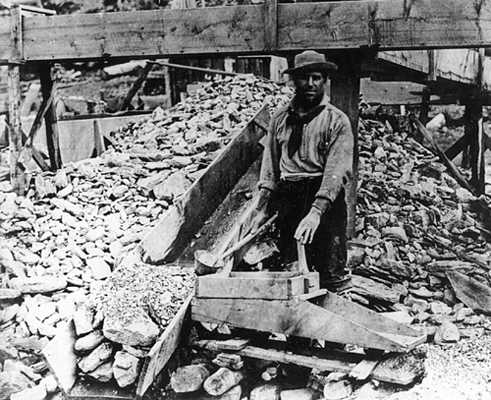
This “old timer” wasn’t afraid to move some material!
Even when I am metal detecting for gold nuggets, though I am not technically “processing” material, you can still think of it in much the same way. If I only detect an area for 20 minutes and call it quits, I have only looked at a small fraction of the ground in comparison to an entire day of detecting.
Also Read: Finally! The Ultimate Gold Panning Guide!
And: The 4 Best Gold Panning Kits on the Market
Being a Successful Gold Miner is Hard Work!
There is really no way around it. I don’t know anyone who is lazy that can go out and consistently find much gold. Sure, you can get lucky and find a few specks in the bottom of your pan, or maybe find a little nugget or two with your metal detector, but the best prospectors always work hard and commit themselves.
This may seem like pretty basic stuff, but you wouldn’t believe how often it is overlooked… and people waste lots of time searching for gold in areas where there is a very slim chance of finding any. By taking these three main things into consideration, you will be well on your way to success!
Next: The 5 Best States to Find Gold Nuggets

